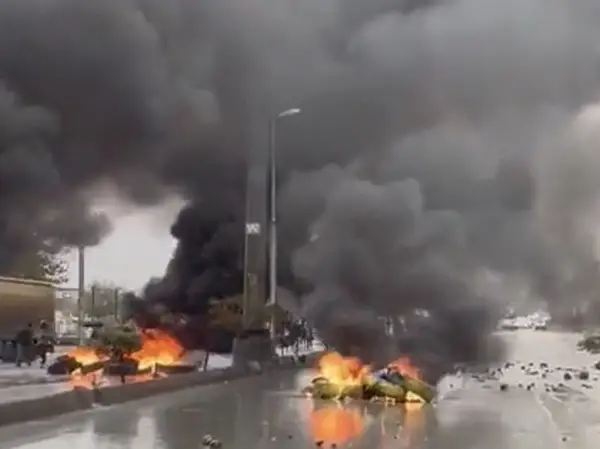The State Department told Iran International Wednesday that the US is “greatly concerned” over the Islamic Republic’s “escalating violence” against protesters.
In response to questions sent by Iran International, the State Department said that the US is particularly worried about violence in Mahabad, a Kurdish majority city in western Iran. Government security forces escalated violence against protesters in Kurdish majority cities in the region on November 16 and since then more heavily armed units have been deployed to the region.
“Iran's leaders are blaming so-called separatists, and they continue to blame the United States, for the protests unfolding across their country. In fact, Iran's leaders have no one to blame but themselves,” the State Department said in an email.
Since the protests began in mid-September, top officials of the clerical regime have been blaming foreign “enemies” for fomenting the uprising, the biggest since the establishment of the Islamic Republic 43 years ago. After government intelligence and security forces failed to end the unrest, the government began blaming “separatists” for encouraging and supporting the protests and particularly targeted Iranian Kurds.
But the State Department said, “The regime's brutal crackdown, along with years of denying Iranians their human rights and perpetrating state-sponsored violence against women, show that Iran's leaders seem incapable of listening to their own people.”
Activists have called for large protests Thursday across the nation to support the Kurdish cities targeted by military units. Already there have been protests in other cities to condemn the violence. A significant number of Kurds in Iran are Sunnis and this week a prominent Sunni religious leader, Mawlana Abdolhamid of the Sunni Baluch population in southeastern Iran voiced support for them. The Baluch have also also brutally targeted by government forces since September 30.
“We continue to pursue accountability for those involved and support the Iranian people in their pursuit of freedom,” the State Department said.
More uranium enrichment
On the question of Iran expanding its nuclear program by more uranium enrichment at a new atomic site, the department said the US is aware of Iran’s claims that it is enriching at 60-percent and already has a large stockpile of highly enriched fissile material “for which it has no credible civilian use.”
After 18 months of negotiations to revive the Obama-era nuclear accord known as JCPOA, talks came to an impasse in August, with the US dismissing Iranian demands that it said were outside the JCPOA framework.
Last week the governing board of the International Atomic Energy Agency (IAEA) passed a resolution that censured Tehran for lack of cooperation with the UN watchdog. Iran responded by threatening “an appropriate response” and later announced it had started enrichment at its Fordow nuclear facility.
“Iran's apparent notion that it could somehow pressure the IAEA or its Member States on the issue of ongoing safeguards investigations into possible undeclared nuclear material and activities in Iran by further escalating its uranium enrichment activities is deluded,” the State Department wrote to Iran International.
The dispute with the IAEA concerns undeclared nuclear activities two decades ago, but the international watchdog is demanding clear answers from Tehran. Foreign Minister Hossein Amir-Abdollahian said Thursday that Iran expects the IAEA to shelve its investigation before a deal is made to revive the JCPOA.
“As we have made clear, Iran's continued nuclear escalations are unconstructive, and they will not provide Iran with any leverage,” the State Department told Iran International.
